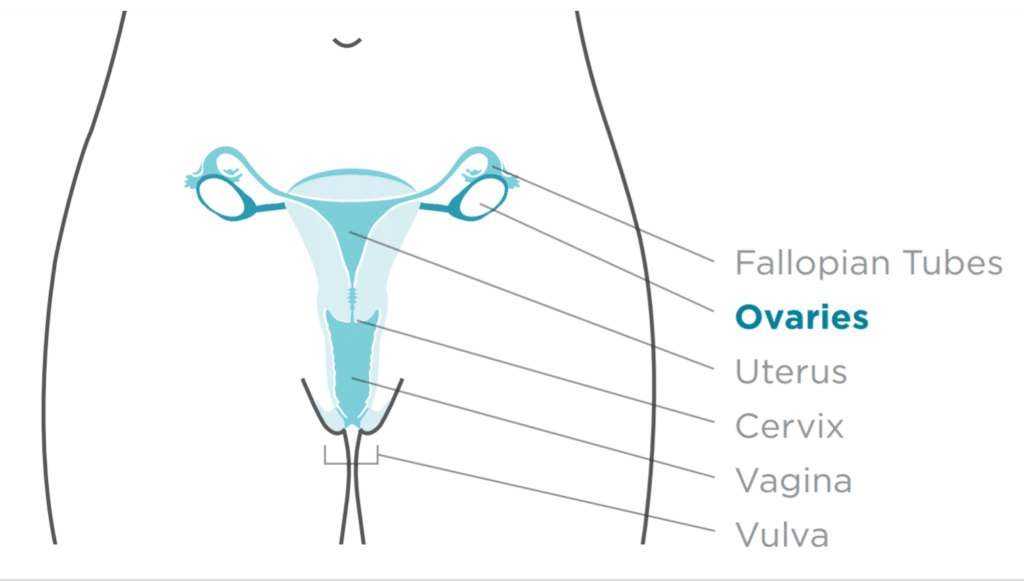Ovarian cancer begins in the ovaries. Ovaries are almond-shaped organs on either side of a woman’s uterus that produces her eggs and hormones. Ovarian cancer affects about 1 in 70 women in the United States. It is the most common cause of death in women due to reproductive cancer. Ovarian Cancer is known as the “silent killer” because, unfortunately, it is usually diagnosed at an advanced stage. Delayed diagnosis usually occurs because ovarian cancer is difficult to detect.
Causes and risk factors
Although the exact cause of ovarian cancer is unknown, there are some risk factors:
- If you smoke
- If you are obese
- If you are over age 40
- If you have a history of breast cancer, specifically BRCA1 or BRCA2
- If someone in your family had it, your risk is increased
- If you are receiving Hormone Replacement Therapy (HRT)
Also, your risk of getting ovarian cancer is increased if:
- Your period started before 12 years of age
- You never took birth control pills
- You were over age 30 when you had your first child
- Menopause started after 50 years of age

Ovarian cancer symptoms and signs
Ovarian cancer in the early stages rarely causes any symptoms. Ovarian cancer is difficult to detect because the symptoms are vague and nonspecific. Symptoms such as stomach pain, bowel problems, bloating, or urinary difficulties can indicate ovarian cancer, but they are also associated with much more common disorders. A high proportion of women diagnosed with ovarian cancer are treated for a urinary tract infection before the correct diagnosis is made.
Ovarian cancer prevention
As it is not known what causes ovarian cancer, there is no sure way to prevent it. You can reduce your risk, however, if you stop smoking and eat a balanced diet and exercise daily.
Ovarian cancer treatment Las Vegas, NV
No reliable screening test exists for ovarian cancer.The mainstay of treatment for ovarian cancer includes surgery and chemotherapy. Surgery for ovarian cancer that appears confined to the ovaries involves comprehensive staging. The elements of staging for ovarian cancer include a total hysterectomy, removal of the ovaries and tubes, total omentectomy, removal of pelvic and periaortic lymph nodes, and peritoneal biopsies. When ovarian cancer is diagnosed with obvious spread, debulking surgery is indicated. The goal of debulking is to remove as much of the cancer as is feasible and safe. For these reasons, ovarian cancer is typically not amenable to minimally invasive surgery.
Schedule an Ovarian Cancer Consultation Today
At Nevada Surgery and Cancer Care, we provide comprehensive treatment for ovarian cancer including surgery, chemotherapy, long-term management plans, and research protocols. Please contact us today to schedule an appointment.
